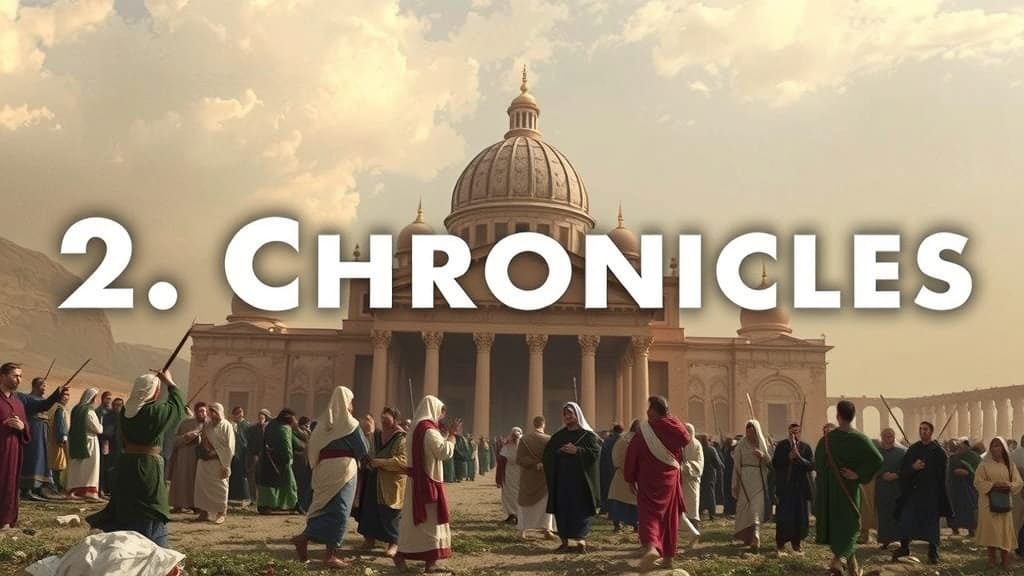Men read the Book of 2 Chronicles and see a repetitive morality play. They see a long, sad cycle of good kings bringing "revival" and bad kings bringing ruin. They treat it as a history lesson on the importance of good leadership and proper Temple worship. They are studying the maintenance records for a sinking ship and calling it nautical science.
2 Chronicles is not a history of revival and failure. It is a divine audit of institutional religion, proving with monotonous and brutal clarity that even the most sincere attempts at external reform are utterly powerless to save the human soul. It is the ego trying to fix itself, over and over, and failing every single time.
1. The Temple: The Central Idol
The entire book is centered on the Temple. The spiritual state of the nation and its king is measured by one primary metric: their relationship to this one building and its prescribed rituals. Did they cleanse the Temple? Did they restore the Levitical duties? Did they celebrate the Passover according to the rules?
This is the very essence of the religious ego. The focus has shifted completely from the living presence of God to the maintenance of the house of God. The institution has replaced the Spirit. The kings are judged not on the state of their heart's connection to the living God, but on their performance as administrators of a religious system. This is the spirit of the Pharisee, codified and chronicled on a national scale.
2. "Revival" is the Ego's Self-Repair
The stories of the "good" kings Asa, Jehoshaphat, Hezekiah, and Josiah are not stories of spiritual renewal. They are case studies in the ego's best attempt at self-correction.
When the nation falls into idolatry, the "revival" is always the same: a return to the external Law. The high places are torn down, the Temple is cleansed, and most telling of all, the "Book of the Law" is read aloud, and the people vow to follow it. This happens most dramatically with Josiah, who rediscovers the book and initiates the most thorough reformation of all.
And what is the result? It lasts exactly as long as he is alive. The moment he dies, the nation plunges back into darkness. Why? Because you cannot fix a consciousness problem with a behavioral solution. You cannot cure a spiritual disease with religious activity. They were polishing the outside of the cup, but the inside, the heart of the people, was never changed. The Law has no power to change the heart; it can only reveal its corruption. This is why God, speaking through the prophets, would later say, "I will give you a new heart and put a new spirit in you; I will remove from you your heart of stone." (Ezekiel 36:26). The revivals of Chronicles are all attempts to make a heart of stone beat.
3. The Destruction: A Necessary Mercy
The book ends with the total destruction of Jerusalem and the burning of the Temple. The religious mind calls this "God's judgment." This is a profound misunderstanding. The destruction of the Temple was a necessary act of spiritual surgery.
The Temple, the ego's greatest religious creation, had become the ultimate idol. It was the primary obstacle between the people and God. It gave them the illusion of security, the false comfort that as long as the building stood and the rituals were performed, they were safe. It was a spiritual cancer. God did not destroy it in anger; He removed it in mercy.
2 Chronicles is the Bible's own definitive argument against the futility of organized, external religion. It demonstrates through centuries of repeated failure that no amount of reform, no amount of rule-keeping, no amount of institutional maintenance can change the human heart. It is a long, slow, and brutal argument that the entire system built on the "letter" is a dead end. It forces the soul to look for a New Covenant, one not written on stone tablets or in rediscovered books, but written by the Spirit on the living heart.
